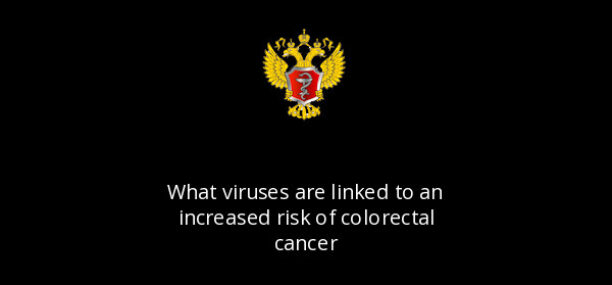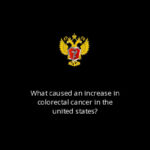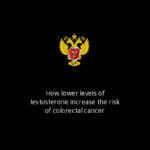There are several viruses that have been linked to an increased risk of colorectal cancer, but the role of these viruses in directly causing mutations in the APC gene is not well understood.
One virus that has been studied in relation to colorectal cancer is the human papillomavirus (HPV). Although HPV is most commonly associated with cervical cancer, studies have suggested that it may also play a role in the development of some cases of colorectal cancer.
Human Papillomavirus (HPV) is believed to have a potential association with an increased risk of colorectal cancer. HPV primarily affects the mucous membranes and skin, including the anogenital region. While HPV is commonly associated with cervical, anal, and oropharyngeal cancers, emerging evidence suggests a potential link between HPV infection and colorectal cancer.
Research indicates that HPV DNA sequences have been detected in colorectal tumors, suggesting a possible role of HPV in colorectal carcinogenesis. However, the exact mechanism by which HPV may contribute to colorectal cancer development is still under investigation. It’s hypothesized that HPV infection may induce cellular changes, promote inflammation, or interfere with cellular regulatory mechanisms in the colorectal mucosa, ultimately predisposing individuals to colorectal cancer.
It’s important to note that while HPV may have a potential association with colorectal cancer, the development of colorectal cancer is multifactorial, involving various genetic, environmental, and lifestyle factors. Therefore, the role of HPV in colorectal carcinogenesis requires further research to elucidate its significance and clarify the mechanisms involved.
Another virus that has been linked to an increased risk of colorectal cancer is the Epstein-Barr virus (EBV). EBV is a type of herpesvirus that is best known for causing infectious mononucleosis, but it has also been linked to the development of some types of cancer, including lymphoma and nasopharyngeal carcinoma. Some studies have suggested that EBV may also play a role in the development of some cases of colorectal cancer, although more research is needed to better understand the nature of this association.
Hepatitis B virus (HBV) and Hepatitis C virus (HCV) infections can have indirect effects on gastrointestinal health, including triggering or exacerbating symptoms of irritable bowel syndrome (IBS) and inflammatory bowel diseases (IBD) such as ulcerative colitis (UC). Here’s how these viral infections may contribute to gastrointestinal symptoms and increase the risk of colorectal cancer in patients with UC:
1. Immune Dysregulation: Chronic viral infections like HBV and HCV can lead to dysregulation of the immune system, including an overactive immune response or chronic inflammation. In patients with UC, this immune dysregulation may exacerbate existing inflammation in the colon and worsen symptoms such as abdominal pain, diarrhea, and rectal bleeding.
2. Gut Microbiota Alterations: Viral infections can disrupt the balance of gut microbiota, leading to dysbiosis. Changes in the composition of gut microbiota have been implicated in the pathogenesis of IBS and IBD. Dysbiosis may further contribute to gastrointestinal symptoms and inflammation in patients with UC.
Chronic liver disease associated with HBV and HCV infections can disrupt the balance of gut microbiota (dysbiosis), leading to changes in intestinal permeability, mucosal inflammation, and immune responses in the gut. Dysbiosis and intestinal barrier dysfunction may contribute to the pathogenesis of gastrointestinal conditions, such as inflammatory bowel disease (IBD) and irritable bowel syndrome (IBS), in patients with chronic liver disease.
3. Increased Intestinal Permeability: Chronic viral infections and associated inflammation can compromise the integrity of the intestinal barrier, leading to increased intestinal permeability (leaky gut). Increased intestinal permeability allows for the translocation of bacterial toxins and antigens from the gut lumen into the bloodstream, triggering immune responses and exacerbating inflammation in UC.
4. Colorectal Cancer Risk: Chronic inflammation in the colon, whether due to UC or viral infections, can increase the risk of colorectal cancer. Patients with UC already have an elevated risk of developing colorectal cancer compared to the general population. Chronic viral infections may further elevate this risk by promoting inflammation, oxidative stress, and DNA damage in the colonic epithelium.
5. Synergistic Effects: The combination of UC and chronic viral infections may have synergistic effects on gastrointestinal health and cancer risk. Viral-induced inflammation may exacerbate existing inflammation in the colon, leading to more severe disease manifestations and an increased risk of colorectal cancer.
6. Impaired Detoxification: The liver is responsible for detoxifying various substances, including metabolic waste products and toxins absorbed from the gastrointestinal tract. In individuals with chronic liver disease caused by HBV or HCV infections, impaired liver function can compromise detoxification processes, leading to the accumulation of harmful substances in the bloodstream. These toxins can potentially contribute to gastrointestinal symptoms, such as nausea, vomiting, and altered bowel habits.
7. Impaired Bile Production and Flow: The liver plays a crucial role in bile production and secretion. Chronic liver damage due to HBV and HCV infections can impair bile synthesis and flow, leading to cholestasis (reduced bile flow) and bile duct dysfunction. As a result, patients may experience bile duct inflammation (cholangitis) or develop gallstones, which can obstruct the bile ducts and impair bile flow. Disrupted bile flow can affect digestion and absorption of dietary fats and fat-soluble vitamins in the small intestine.
Cholangitis can lead to alterations in bile flow and composition, which may predispose individuals to colorectal infections. Bile normally helps to maintain the balance of gut microbiota and prevents the overgrowth of harmful bacteria in the intestines. However, in cholangitis, obstruction or inflammation of the bile ducts can disrupt bile flow, leading to bacterial overgrowth in the intestines and an increased risk of colorectal infections.
Vaginal Infections: The liver plays a crucial role in detoxification and hormone metabolism. In cholangitis, impaired liver function can result in the accumulation of toxins and metabolites in the bloodstream, which may affect hormonal balance and immune function. Disruption of the normal hormonal balance can predispose individuals to vaginal infections, such as bacterial vaginosis or yeast infections. Additionally, systemic inflammation associated with cholangitis may weaken the immune response, making individuals more susceptible to infections in various parts of the body, including the vagina.
Patients with cholangitis may experience gastrointestinal symptoms such as pale or clay-colored stools due to decreased bile flow and impaired bilirubin metabolism. The presence of foul-smelling white-greyish stools may indicate underlying biliary obstruction or dysfunction. Similarly, vaginal discharge with an unusual odor or consistency may be a sign of infection or hormonal imbalance secondary to cholangitis.
Managing viral infections such as HBV and HCV in patients with UC requires a comprehensive approach that addresses both the viral infection and the underlying gastrointestinal inflammation. Close monitoring, appropriate antiviral therapy, and management of UC flare-ups are essential to reduce symptoms, minimize disease progression, and lower the risk of colorectal cancer. Additionally, lifestyle modifications, dietary interventions, and regular surveillance colonoscopies may be recommended for optimal disease management and colorectal cancer prevention in high-risk populations
Viral infections such as mumps virus, CMV, and certain hepatitis viruses can contribute to pancreatitis and cholangitis, while H. pylori bacterial infection is a major cause of gastritis and peptic ulcer disease. These infections highlight the intricate relationship between infectious agents and gastrointestinal health, emphasizing the importance of early detection, treatment, and prevention strategies to mitigate their adverse effects on digestive function
Viral Infections and Pancreatitis:
Mumps Virus: Mumps virus is known to cause acute pancreatitis, particularly in children and young adults. The virus can infect the pancreas directly, leading to inflammation and pancreatic injury.
Cytomegalovirus (CMV): CMV infection can also result in pancreatitis, especially in immunocompromised individuals such as those with HIV/AIDS or transplant recipients. CMV-associated pancreatitis is often severe and may require specific antiviral therapy.
Pancreatic Enzyme Secretion: The pancreas secretes digestive enzymes, including lipase, protease, and amylase, into the small intestine to facilitate the digestion of fats, proteins, and carbohydrates. Viral pancreatitis can disrupt pancreatic enzyme secretion, leading to impaired digestion and nutrient absorption in the intestines. and link these viral infections indirectly to increasing the risk of colorectal cancer
Viral Infections and Cholangitis:
Hepatitis Viruses (HBV and HCV): Chronic infection with hepatitis B virus (HBV) or hepatitis C virus (HCV) can lead to chronic liver disease, including cirrhosis and hepatocellular carcinoma. Cholangitis, inflammation of the bile ducts, can occur secondary to liver damage and biliary obstruction caused by chronic viral hepatitis.
Cytomegalovirus (CMV): CMV infection can involve the biliary tract, leading to cholangitis, particularly in immunocompromised individuals.
Viral/bacterial Infections and Gastritis:
Helicobacter pylori (H. pylori): While H. pylori is a bacterium rather than a virus, it plays a significant role in gastritis and peptic ulcer disease. H. pylori infection is a major risk factor for the development of chronic gastritis, gastric and duodenal ulcers, and even gastric cancer. The bacterium colonizes the stomach lining, leading to inflammation, mucosal damage, and alterations in gastric acid secretion.
Impact of H. pylori Infection on Gastrointestinal Health:
- H. pylori infection triggers an inflammatory response in the stomach lining, leading to chronic gastritis.
- The bacterium produces urease, an enzyme that converts urea to ammonia, which neutralizes gastric acid and creates an alkaline environment favorable for H. pylori survival.
- Chronic inflammation and mucosal damage caused by H. pylori can result in the formation of gastric and duodenal ulcers.
- H. pylori infection is associated with an increased risk of gastric cancer, particularly intestinal-type adenocarcinoma
Impact on Bile Flow and Digestion:
Viral infections such as hepatitis B and C can lead to chronic liver disease and inflammation, potentially causing obstruction or inflammation of the bile ducts. This impairment in bile flow can disrupt the digestion and absorption of dietary fats and fat-soluble vitamins in the intestines.
Malabsorption of fats and fat-soluble vitamins due to bile duct obstruction or inflammation may result in changes in the intestinal environment, potentially contributing to an altered microbiota and inflammation, which are associated with colorectal cancer development.
Impact on Pancreatic Enzyme Secretion:
Viral pancreatitis, as seen in infections such as mumps virus and cytomegalovirus (CMV), can disrupt pancreatic enzyme secretion. Pancreatic enzymes are essential for the digestion of fats, proteins, and carbohydrates in the intestines.
Impaired pancreatic enzyme secretion due to viral pancreatitis can lead to inefficient digestion and nutrient absorption in the intestines, potentially altering the intestinal milieu and promoting conditions favorable for colorectal cancer initiation and progression.
Association with Colorectal Cancer:
Chronic inflammation and alterations in the intestinal environment resulting from impaired bile flow and pancreatic enzyme secretion may contribute to the development of colorectal cancer.
Inflammatory mediators released in response to viral infections and subsequent organ dysfunction can promote cellular proliferation, DNA damage, and alterations in gene expression, all of which are implicated in colorectal carcinogenesis.
Viral infections affecting bile flow and pancreatic function can indirectly influence colorectal cancer risk by disrupting normal digestive processes, altering the intestinal environment, and promoting chronic inflammation. These interconnected pathways underscore the importance of considering the broader impact of viral infections on gastrointestinal health and their potential implications for colorectal cancer prevention and management
Verified by: Dr.Diab (March 29, 2024)
Citation: Dr.Diab. (March 29, 2024). What viruses are linked to an increased risk of colorectal cancer. Medcoi Journal of Medicine, 5(2). urn:medcoi:article32971.














There are no comments yet
Or use one of these social networks